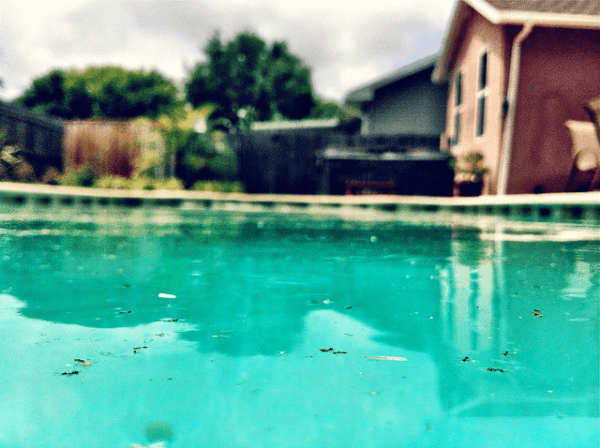Chlorine is used to disinfect pool water, in particular, to prevent disease-causing microorganisms from growing in pools. It exists naturally as a gas, and some natural chlorine particles may be present in the area around the swimming pool water. Swimmers often experience swollen eyes or itchy skin caused by chlorine particles in the air.
In fact, according to the European Respiratory Journal, the smell of swimming pools — what people usually assume is the smell of chlorine — is actually the smell of compounds created by the reaction of chlorine with urine and sweat. These compounds easily evaporate into the air and the combination irritates eyes and respiratory pathways.
Currently, there is not enough evidence to link these irritants to any long term detrimental effects; however, some studies done by the Centers for Disease Control and Prevention suggest that certain disinfectants like chlorine might cause cancer and cell damage.
Image Source: Mario Tama
In an experiment involving rats, researchers found that chlorinated water affected mainly the fur, respiratory tracts, and eyes of the rats, while the liver was most affected by the by-products (of chlorine reacting with urine and sweat in the water). In addition, chlorine doesn’t kill all of the bacteria in a pool, and doesn’t kill other particles instantly. For example, chlorine will not kill cryptosporidium, a type of bacteria that causes gastrointestinal diseases. Thus, drinking pool water will expose swimmers to these bacteria. In communal pools especially, bacteria from a variety of sources might circulate between swimmers. Drinking chlorinated pool water can also be dangerous for gut bacteria as well. As a pesticide, chlorine kills beneficial gut bacteria that are important for digestion and normal gut health.
During the summer, diving into a cool blue swimming pool can feel incredibly good. To stay healthy and clear of chemical irritants and bacteria that might be in a pool, people can start by remaining aware of the contents of a pool. Taking a shower soon after a swim can also help mitigate the irritants in the water.
Feature Image Source: Dirty Pool by Daniel Doyle










